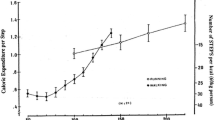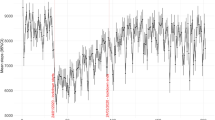Abstract
Step-counting turns walking into a health intervention. In the era of the Fitbit, physical activity tracking is commonplace, and a growing body of literature investigates the implications of digitally mediated human movement. This paper grows out of concern with the proliferation of tracking technologies; however, the focus here is not on the technology itself, but on the activity of step-counting that the technology has popularized. I look at step-counting to think about the ramifications of the promotion of physical activity in what Ilona Kickbusch (J Epidemiol Community Health 60(7):561, 2006) has called “the health society”. As a theoretical reflection, the paper contributes to discussions about the reach of health promotion discourses into daily life. Drawing on Foucauldian analyses of neoliberal approaches to health, I argue that the instrumental understandings of physical activity that surface in health promotion efforts around walking constrain meanings people can make of their bodies. I extend Foucauldian critique with materialist perspectives from the phenomenology of Maurice Merleau-Ponty and Drew Leder. Adopting Leder’s notion of the “absent body”, I argue that in the health society, strategies like step-counting make life smaller and narrow our ability to imagine life differently, with all the political consequences that might entail.
Similar content being viewed by others
References
Adams, M.L. 2016. Astounding exploits and laborious undertakings: Nineteenth-century pedestrianism and the cultural meanings of endurance. In Endurance sports, ed. W. Bridel, J. Denison, and P. Markula, 19–34. London: Routledge.
Ayo, N. 2012. Understanding health promotion in a neoliberal climate and the making of health conscious citizens. Critical Public Health 22 (1): 99–105.
Baum, F. 1998. The new public health: An Australian perspective. Melbourne: Oxford University Press.
Bullington, J. 2013. The expression of the psychosomatic body from a phenomenological perspective. Dordrecht: Springer.
Bullington, J. 2009. Embodiment and chronic pain: Implications for rehabilitation and practice. Health Care Analysis 17 (2): 100–109.
Bunton, R., S. Nettleton, and R. Burrows (eds.). 1995. The sociology of health promotion: Critical analyses of consumption, lifestyle, and risk. New York: Routledge.
Carter, E.D. 2015. Making the blue zones: Neoliberalism and nudges in public health promotion. Social Science and Medicine 133: 374–382.
Castel, R. 1991. From dangerousness to risk. In The Foucault effect: Studies in governmentality, ed. G. Burchell, C. Gordon, and P. Miller, 281–298. Chicago: University of Chicago Press.
Cipriani, J. 2015. Fitbit beats back competition with wellness program. Fortune. http://fortune.com/2015/10/20/fitbit-wellness-program/. Accessed 29 Aug 2017.
Conn, V.S. 2010. Depressive symptom outcomes of physical activity interventions: Meta-analysis findings. Annals of Behavioral Medicine 39 (2): 128–138.
Crawford, R. 1977. You are dangerous to your health: The ideology and politics of victim blaming. International Journal of Health Services 7 (4): 663–680.
Crawford, R. 1980. Healthism and the medicalisation of everyday life. International Journal of Health Services 10 (3): 365–388.
Crawford, R. 2004. Risk ritual and the management of control and anxiety in medical culture. Health 8 (4): 505–528.
Crawford, R. 2006. Health as a meaningful social practice. Health 10 (4): 401–420.
Dimeo, F., M. Bauer, I. Varaham, G. Proest, and U. Halter. 2001. Benefits from aerobic exercise in patients with major depression: A pilot study. British Journal of Sports Medicine 35 (2): 114–117.
Dumas, A., and S. Laberge. 2005. Social class and ageing bodies: Understanding physical activity in later life. Social Theory and Health 3 (3): 183–205.
Evans, M. 2011. 23 and ½ hours: What is the single best thing we can do for our health? http://www.youtube.com/watch?v=aUaInS6HIGo. Accessed 14 June 2017.
Foucault, M. 1978. History of sexuality: An introduction. Translated by R. Hurley. New York: Pantheon Books.
Foucault, M. 1991. Governmentality. In The Foucault effect: Studies in governmentality, ed. G. Burchell, C. Gordon, and P. Miller, 87–104. London: Harvester Wheatsheaf.
Foucault, M. 1993. About the beginning of the hermeneutics of the self. Political Theory 21 (2): 198–227.
Foucault, M. 1997. Ethics: Subjectivity and truth. Essential works of Michel Foucault, 1954–1984, vol. 1. New York: New Press.
Green, J. 2009. ‘Walk this way’: Public health and the social organization of walking. Social Theory and Health 7 (1): 20–38.
Greco, M. 2009. Thinking beyond polemics: Approaching the health society through Foucault. Oesterrichische Zeitschrift fuer Soziologie 34 (2): 13–27.
Ingham, A.G. 1985. From public issue to personal trouble: Well-being and the fiscal crisis of the State. Sociology of Sport Journal 2 (1): 43–55.
Ingold, T. 2004. Culture on the ground: The world perceived through the feet. Material Culture 9 (3): 315–340.
Käufer, S., and A. Chemero. 2015. Phenomenology: An Introduction. Cambridge: Polity Press.
Kickbusch, I. 2006. The health society: The need for a theory. Journal of Epidemiology and Community Health 60 (7): 561.
Kickbusch, I. 2007. Responding to the health society. Health Promotion International 22 (2): 89–91.
Leder, D. 1990. The absent body. Chicago: University of Chicago Press.
LeBesco, K. 2011. Neoliberalism, public health, and the moral perils of fatness. Critical Public Health 21 (2): 153–164.
Lee, J., and D. MacDonald. 2010. ‘Are they just checking our obesity or what?’ The healthism discourse and rural young women. Sport, Education and Society 15 (2): 203–219.
Lightman, E., A. Mitchell, and B. Wilson. 2008. Poverty is making us sick: A comprehensive survey of income and health in Canada. Toronto: Wellesley Institute.
Lupton, D. 1993. Risk as moral danger: The social and political functions of risk discourse in public health. International Journal of Health Services 23 (3): 425–435.
Lupton, D. 2006. Sociology and risk. In Beyond the risk society: Critical reflections on risk and human security, ed. G. Mythen, and S. Walklate, 11–24. Maidenhead, Berkshire: Open University Press.
Lupton, D. 2013. Quantifying the body: Monitoring and measuring health in the age of mHealth technologies. Critical Public Health 23 (4): 393–403.
Marshall, B.L. 2017. Our Fitbits, our (aging) selves? http://actproject.ca/our-fitbits-our-agingselves-digital-self-tracking-and-embodied-aging/. Accessed 11 Apr 2018.
Merleau-Ponty, Maurice (2012/1945) Phenomenology of Perception. Translated by D.A. Landes. London: Routledge.
Moore, P., and A. Robinson. 2016. The quantified self: What counts in the neoliberal workplace. New Media & Society 18 (11): 2774–2792.
Neff, G., and D. Nafus. 2016. Self-tracking. Cambridge: MIT Press.
Painter, A. 2016. A universal basic income: The answer to poverty, insecurity, and health inequality? British Medical Journal. https://doi.org/10.1136/bmj.i6473.
Pantzar, M., and M. Ruckenstein. 2015. The heart of everyday analytics: Emotional, material and practical extensions in self-tracking market. Consumption Markets & Culture 18 (1): 92–109.
Pelters, B., and B. Wijma. 2016. Neither a sinner nor a saint: Health as a present-day religion in the age of healthism. Social Theory and Health 14 (1): 129–148.
Petersen, A. 1997. Risk, governance and the new public health. In Foucault, health and medicine, ed. A. Peterson, and R. Bunton, 189–206. New York: Routledge.
Petersen, A., and D. Lupton. 1997. The new public health: Discourses, knowledges, strategies. Thousand Oaks, CA: Sage.
Polzer, J., and E. Power (eds.). 2016. Neoliberal governance and health: Duties, risks and vulnerabilities. Kingston and Montreal: McGill-Queen’s Press.
Rich, E., and A. Miah. 2014. Understanding digital health as public pedagogy: A critical framework. Societies 4: 296–315.
Richardson, C.R., T.L. Newton, J.J. Abraham, A. Sen, M. Jimbo, and A.M. Swartz. 2008. A meta-analysis of pedometer-based walking interventions and weight loss. Annals of Family Medicine 6 (1): 69–77.
Rose, N. 1989. Governing the soul: The shaping of the private self. London: Routledge.
Sherrill, D.L., K. Kotchou, and S.F. Quan. 1998. Association of physical activity and human sleep disorders. Archive of Internal Medicine 158 (17): 1894–1898.
Slatman, J. 2014. Multiple dimensions of embodiment in medical practices”. Medicine, Health Care and Philosophy 17 (4): 549–557.
Statista (n.d.) Number of Fitbit devices sold worldwide from 2010 to 2016. https://www.statista.com/statistics/472591/fitbit-devices-sold/. Accessed 29 Aug 2017.
Tinning, R., and T. Glasby. 2002. Pedagogical work and the ‘cult of the body’: Considering the role of HPE in the context of the ‘New Public Health’. Sport, Education and Society 7 (2): 109–119.
Trotter, K. 2015. Walking 10,000 steps a day is good for you. Does it matter how you get there? Globe and Mail, 2 February. www.theglobeandmail.com/life/health-and-fitness/ask-a-health-expert/walking-10000-steps-per-day-is-good-for-you-does-it-matter-how-you-get-there/article22748886/. Accessed 14 June 2017.
Tulloch, J., and D. Lupton. 2003. Risk and everyday life. London: Sage.
Walking for Health: Why This Simple Form of Activity Could Be Your Best Health Insurance. (2015). Boston: Harvard Health Publications. Retrieved from Nursing & Allied Health Database. https://search-proquest-com.proxy.queensu.ca/docview/1746628604?accountid=6180. Accessed 11 Apr 2018.
Wilkinson, I. 2010. Risk, vulnerability and everyday life. New York: Routledge.
Williamson, B. 2015. Algorithmic skin: Health-tracking technologies, personal analytics and the biopedagogies of digitized health and physical education. Sport, Education and Society 20 (1): 133–151.
Acknowledgements
Many thanks to the anonymous reviewers, and to Sarah Barnes, Dia Da Costa, Samantha King, Eleanor MacDonald, and Eric Mykhalovskiy for useful feedback on earlier versions of this article.
Author information
Authors and Affiliations
Corresponding author
Rights and permissions
About this article
Cite this article
Adams, M.L. Step-counting in the “health-society”: phenomenological reflections on walking in the era of the Fitbit. Soc Theory Health 17, 109–124 (2019). https://doi.org/10.1057/s41285-018-0071-8
Published:
Issue Date:
DOI: https://doi.org/10.1057/s41285-018-0071-8




